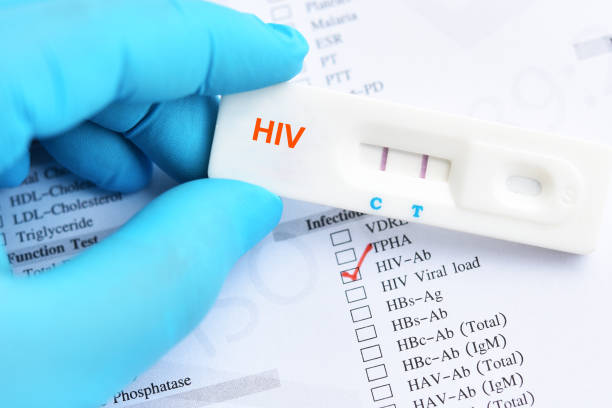The 7 World's Most Dangerous Roads: A Perilous Journey
VIP Travel Experiences: Top Tips and Destinations for Your Next Trip
The Best Kitchen Tiles in 2024: Brands, Types and Prices
Top Rated Best Air Fryers of 2024: Expert Reviews
Conscious Vs Subconscious Mind: What's The Difference?
What Is The Spoon Theory? How Many Spoons Do You Have?
5 Common Misconceptions About HIV/AIDS
HIV and AIDS are probably the two biggest health problems in the world. Since its emergence, the disease has evolved from the most feared and unknown disease to a manageable disease. Despite the increasing knowledge about AIDS or HIV medicines and treatments, various misconceptions still exist. Here is a quick look at some of them:
HIV and AIDS are probably the two biggest health problems in the world. Since its emergence, the disease has evolved from the most feared and unknown disease to a manageable disease. Despite the increasing knowledge about AIDS or HIV medicines and treatments, various misconceptions still exist. Here is a quick look at some of them:

1. Oral sex does not pose a risk of HIV transmission
Although the risk is quite low, oral sex is not safe in terms of transmitting HIV. On the contrary, cuts and abrasions of the mouth or genitals or direct contact with semen increase the risk of HIV infection.
2. Having HIV means having AIDS
A person diagnosed with HIV does not necessarily have AIDS. On the contrary, once HIV is diagnosed and the person chooses early treatment and HIV medicines, it is possible to prevent AIDS. However, for most people in the world, HIV still means AIDS today.
3. HIV/AIDS can be transmitted through insects
You cannot be infected by insect bites, such as: B. mosquito bites, to get HIV. The virus cannot live in the body of an insect and cannot reproduce. It can only be transmitted through contact with the body fluids of an infected person.
4. Infected with HIV/AIDS equals to a death penalty
HIV/AIDS used to be difficult to treat.But with new advances in medicine, it has become even possible to treat syndromes like AIDS and control viruses like HIV with the right HIV medications. This chronic disease is no longer a death sentence but can be managed.
5. Signs of HIV/AIDS are easy to spot
HIV or AIDS has symptoms like fatigue, fever, muscle pain. But it would never be possible to tell someone visually that they have HIV if these symptoms are not noticed or blood tests are not done.
Although the disease is already treatable with effective HIV medications, lack of awareness leads to misunderstanding and stigmatization of patients. This situation must change in our society for the benefit of all.
Disclaimer:
The content of articles discussing symptoms, treatments, health conditions, and side effects is for informational purposes only. Readers must not consider the information provided on the website as professional advice. Readers are kindly requested to exercise their own discretion and not consider the suggestions or opinions of the authors and editors as medical advice. It is very important to seek help from licensed and experienced medical professionals when necessary.











